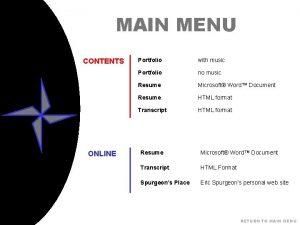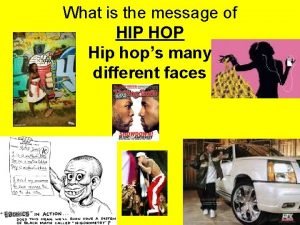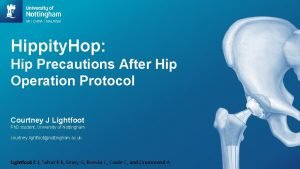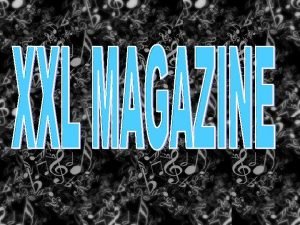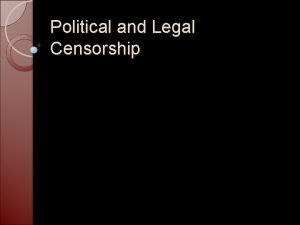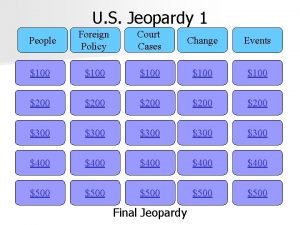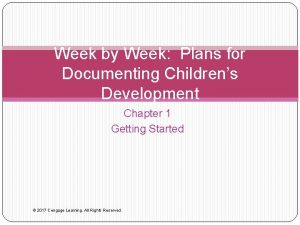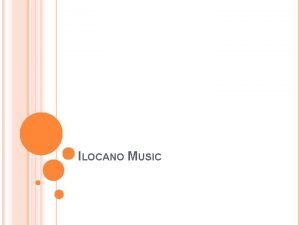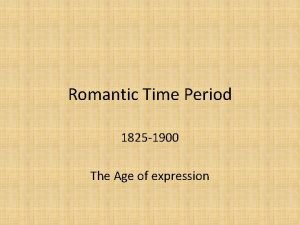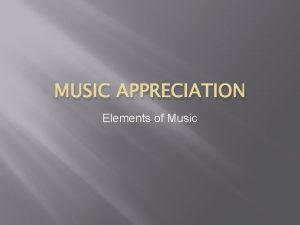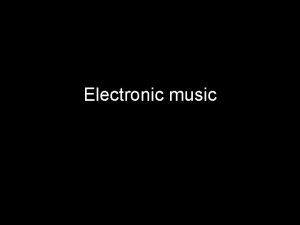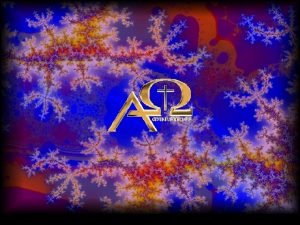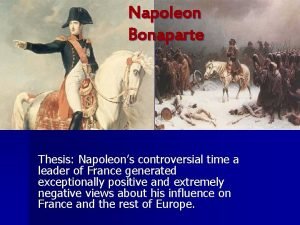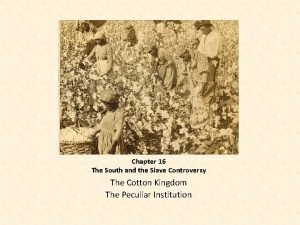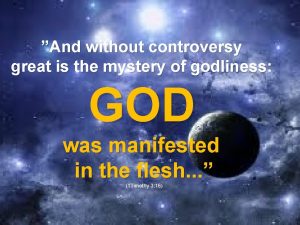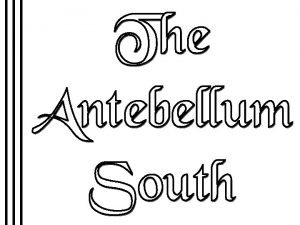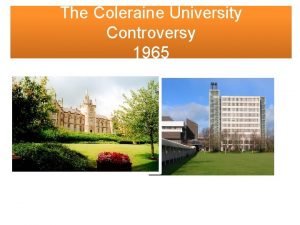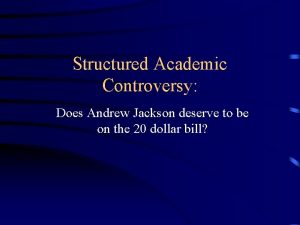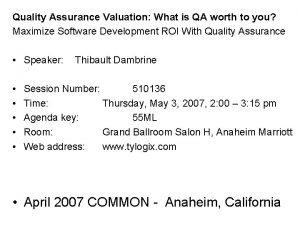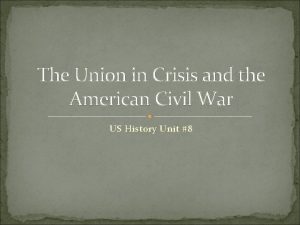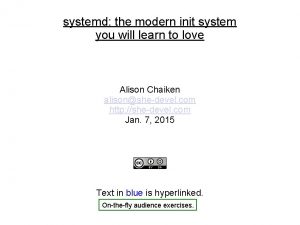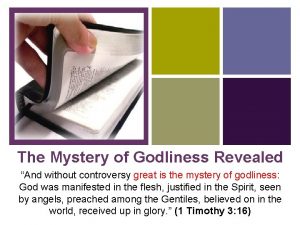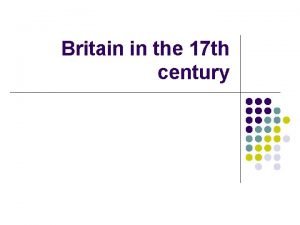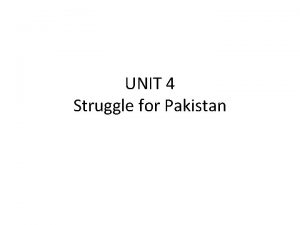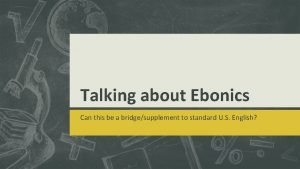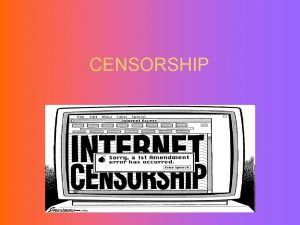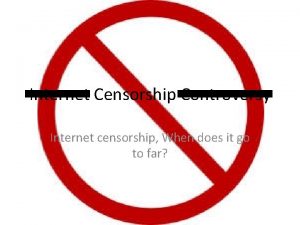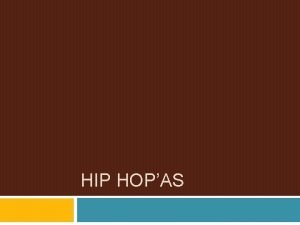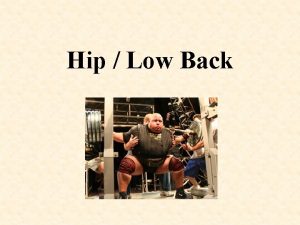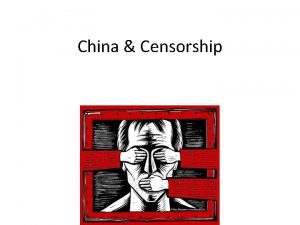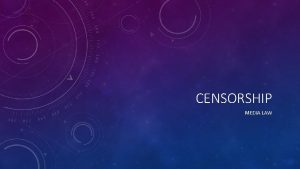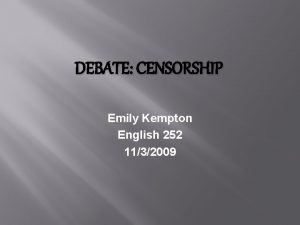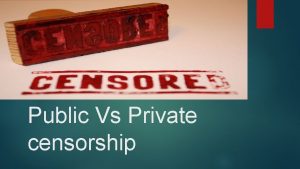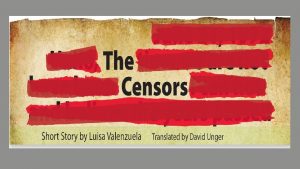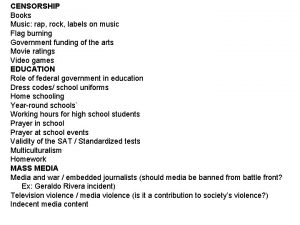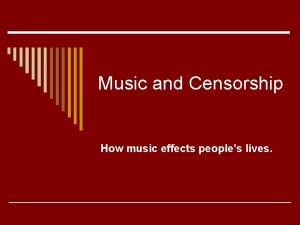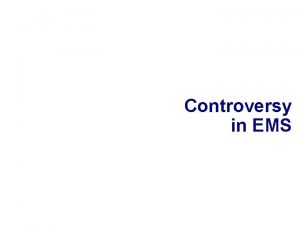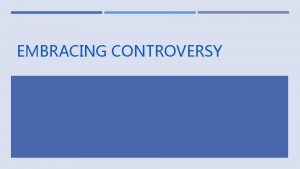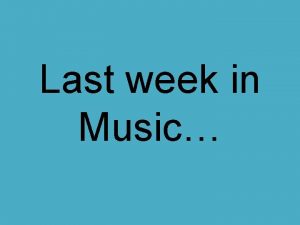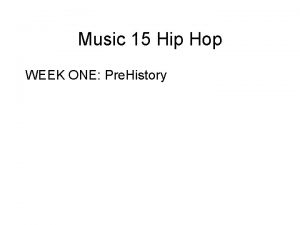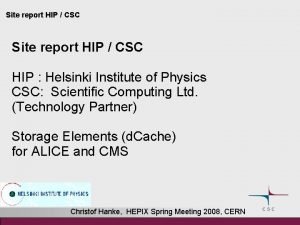MUSIC 15 Week 5 Controversy Censorship As hip



























- Slides: 27

MUSIC 15 Week 5 Controversy

Censorship? • As hip hop became more popular and as artists used more controversial language and subject matter, pushback from the broader community and the law became more common • There was no system for rating/censoring music

Censorship? • Most popular songs were aimed at radio, and so conformed to FCC broadcast decency standards • There had however, always been a smaller market for “blue” and controversial material that would not fly on the radio

Censorship? • In the 1980 s concerns of lyrical content in heavy metal and rap songs in particular led to the formation of the Parents Music Resource Center (PMRC) • The PMRC convened congressional hearings and pushed for an MPAA-like ratings system for popular music

Law Enforcement • At the same time there had been protests led by law enforcement groups against labels for releasing songs like “Fuck the Police” and Ice-T and Bodycount’s “Cop Killer”

2 Live Crew “Me So Horny” • From the album “As Nasty As They Wanna Be” released independently on Luke Records in 1989 • 2 Live Crew were basically a party band/club act that featured Luke’s smutty rhymes over up tempo, bassheavy electro beats (the blueprint of “Miami Bass”

2 Live Crew Obscenity Trial • Legal basis of obscenity is “community standards” • In the first case of the suit against the band, the judge appointed himself as guardian of community standards and ruled against them • On appeal, the band’s management convened expert witnesses to parse the cultural context and how it intersected with the legal notion of obscenity

Henry Louis Gates Testimony • Main expert witness was literary scholar Henry Louis Gates • Gates argued that when read in context of the history of deliberate exaggeration and bawdiness in African American traditions like toasts and the dozens the work of 2 Live Crew was not obscene • The original conviction was overturned

Responses to Gates • Gates argument was controversial both inside and outside of the black community • Some feminist scholars and spokespeople in particular felt that it was possible to understand the work in its context AND still find it objectionable enough to be legally “obscene”

Questions raised in the 2 Live Crew case • What are community standards? Especially when we can point to overlapping communities • How does music communicate one communities standards to another? Can it? • Was banning 2 Live Crew implicitly racist? • Is legal sanction on music ever OK?

Copyright and Sampling • • Four Basic questions: Who owns music? How do they own it? How has enforcement of laws surrounding the ownership of music affected hip hop production? • Is there an inherent mis-match between the cultural history reflected in the law and that of hip hop?

Royalties • There are two types of royalties at stake here • Publishing, which pertain to the intellectual property rights of the songwriters • Mechanical, which pertain to the use of the recording

Publishing • Music publishing is derived from literary copyright via the notion of sheet music scores • Most music now is not sold in this form, or ever notated, but the implicit legal protection remains • Publishing rights are controlled by publishing companies, which may or may not still be linked to the artist, who collect payments via collection agencies like ASCAP and BMI

Mechanicals • Refer to use of the recording itself (I. e. radioplay, jukeboxes, clubs etc) • It is kind of a technologized “performance” royalty • Usually controlled by the record label

Sampling and clearances • Because the law can not be specific about a threshold for infringement, in the early days people tried to get away with what they could. This is still basically the law. It’s based on precedent, and very few cases are actually litigated • It is essentially a negotiation between the artists, labels, publishing companies and legal system

Sampling and clearances • If you use a sample of another record that’s identifiable, you’ll have to clear and pay mechanical royalties • If the musical material sampled is a significant factor in the new work, you will also have to clear and pay publishing. This will generally involve granting a % writing credit to the artist being sampled

General concerns • In many case this is complicated by the fact that the rights involved have been sold a number of times and it is sometimes unclear who owns them • In some senses, this is not so different from music as usual which is, and has always been, full of borrowing, licit and illicit

Famous Cases • 2 Live Crew “Pretty Woman” • Were sued by Acuff/Rose for using Roy Orbison’s song • The case went all the way to the Supreme Court • 2 Live Crew won on the basis that they had used the song with parodic intent (there is a fair use exemption for parody and satire)

2 Live Crew “Pretty Woman” • From the remake album “As Clean As They Wanna Be” • Grotesque parody of Roy Orbison’s “Pretty Woman”

Famous Cases • Biz Markie vs Gilbert O’Sullivan for “Alone Again Naturally” tried the parody defense and failed • Jimmy Castor vs Beastie Boys; Turtles vs De La Soul were settled out of court in favour of the plaintiffs

Famous Cases • Tuff City vs Def Jam • Tuff City was an independent label that bought up old break records and reissued them, and then tried to sue for infringement. The case failed in part because it was deemed that drum breaks were not “original” enough to meet the threshold for copyright

Famous Cases • Bridgeport vs Dimension films, established that if you directly sample a recording you must pay mechanicals. If you replay (or “interpolate”) material from another song you’ll pay publishing but will not need to pay mechanicals • Essentially the sample-heavy sound of late 80 s hip hop production died with all the lawsuits. Songs based on a single recognizable sample, or with original instrumental backing became more common

Ice Cube “Amerikkka’s Most Wanted” • Title track from Ice Cube’s first solo album after leaving NWA • Produced by the Bomb Squad • Music is much more political now, especially reflecting the influence of the Nation of Islam via Public Enemy • The political rhetoric is wedded to the outlaw stance perfected in NWA

Ice Cube “Black Korea” • Short, highly controversial (and racist) track from his second solo album “Death Certificate” • Indicative of the breakdown in relations between African American and Korean communities in Los Angeles (and New York) • Ostensibly a response to the shooting of a black teenager by a Korean store-owner • Prompted a boycott by Asian-American storeowners

Public Enemy “Welcome to the Terrordome” • First single from “Fear of a Black Planet • Controversial by including lyrics that could be interpreted as anti-Semitic in the wake of controversies surrounding Professor Griff

Snoop Dogg “Gin and Juice”

Dr Dre “Nuthin but a G Thang”
 Music music music
Music music music Poem about hip hop
Poem about hip hop Hip hop hip to the hippity
Hip hop hip to the hippity Xxl magazine awards
Xxl magazine awards Thesis statement about censorship
Thesis statement about censorship Political censorship examples
Political censorship examples Censorship
Censorship Week by week plans for documenting children's development
Week by week plans for documenting children's development Pamulinawen folk song
Pamulinawen folk song Classical music vs romantic music
Classical music vs romantic music Music appreciation elements of music
Music appreciation elements of music What music that employs electronic music?
What music that employs electronic music? King james only controversy
King james only controversy Napoleon controversy
Napoleon controversy Chapter 16 the south and the slavery controversy
Chapter 16 the south and the slavery controversy And without controversy
And without controversy Key and peele slavery
Key and peele slavery Coleraine university controversy
Coleraine university controversy Structured academic controversy
Structured academic controversy Qa rep. khankelly theverge buck house
Qa rep. khankelly theverge buck house How did bleeding kansas embody the slavery controversy
How did bleeding kansas embody the slavery controversy Systemd controversy
Systemd controversy Without controversy great is the mystery of godliness
Without controversy great is the mystery of godliness Inkhorn controversy
Inkhorn controversy What is urdu hindi controversy
What is urdu hindi controversy Ebonics
Ebonics Nature nature controversy
Nature nature controversy Is it a real issue with genuine controversy and uncertainty
Is it a real issue with genuine controversy and uncertainty
